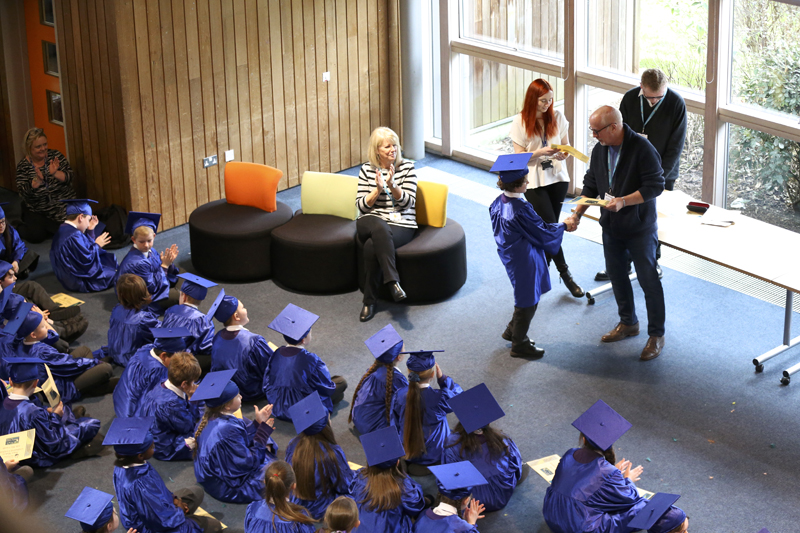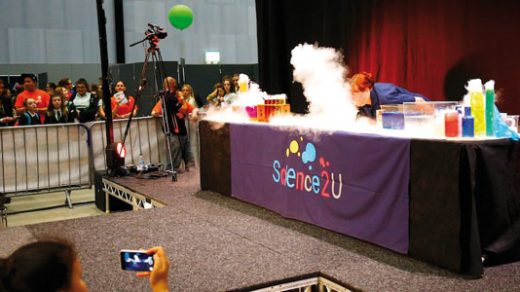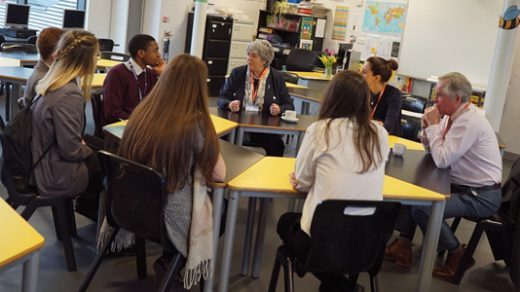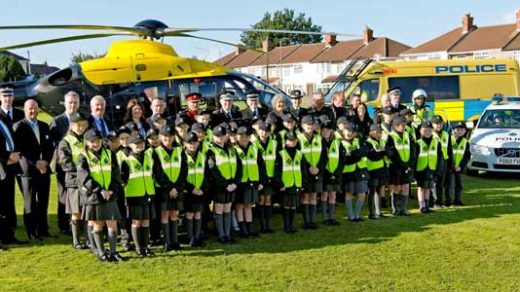Teaching conflict resolution in the classroom

The Trinity Catholic Primary School, located in the heart of North Liverpool, one of the city’s most deprived areas, recently marked its completion of an effective programme for teaching conflict resolution in the classroom.
Similar to many other schools across the country that find themselves in a similar position, headteacher, Rebecca Flynn, recognised that effective partnerships was essential to building a thriving school and vibrant society.
The key to achieve this was forging positive relationships between pupils, parents and the community. She reached out to The Peace Foundation in 2019 with a priority of developing an effective initiative for teaching conflict resolution and emotional intelligence within the whole school community.
The Trinity Primary School and The Peace Foundation forged a strong relationship to educate staff, parents/carers and most importantly the young people in conflict resolution via the pioneering ‘Peace Initiatives’. This unique project creates a culture for optimised learning by embedding a whole school approach to improving behaviour in the classroom, across the whole school and in the community by using a blend of storytelling, activity and reflection.
‘Peace Initiatives’ combines a mix of different programmes aimed at Key Stage 1, Key Stage 2 and also encompasses learning for teachers and parents/carers. ‘Tiny Steps for Peace’ take KS1 pupils on an interactive adventure and is designed to encourage students to be active, engaging and learn through investigation, play and focused discussions.
‘Small Steps for Peace’ is a renowned OFSTED approved Key Stage 2 programme that teaches young people the importance of resolving conflict in a peaceful manner through communication and dialogue, whilst enhancing emotional intelligence.
Parents/carers play a vital role in shaping a young person’s life. This programme recognises their influence, impact and involves them in the project by offering a conflict resolution course that mirrors the work being undertaken in schools, resulting in the message being part of every aspect of the pupil’s life.
Rebecca Flynn, headteacher of The Trinity Catholic Primary School: ‘This has been a great project, which fits with the long term strategic vision that we have for school. We are impressed with the way the project has engaged our pupils and got our parents on board- so much so, that 45 parents have asked to attend the graduation.
‘As a result, we have financed a bus to support our families with this, which is an illustration of the commitment and value we place on the whole project, as is the three year funding of the project.
Our Peace Ambassadors will support their peers gain a better understanding of more effective ways to deal with conflict in their own lives in school and in their future lives.’
The team behind ‘Peace Initiatives’ has seen a number of schools base their founding principles around the project to underpin their policies, which has consequently seen a rise in attainment, attendance and engagement and a reduction in behavioural challenges.
OFSTED has also recognised the programme as an integral part to engaging and re-engaging learners whilst supporting the improvement of attainment and learning.
To learn more about teaching conflict resolution in the classroom and the ‘Peace Initiatives’, ‘Small Steps for Peace’ or any of the Peace Foundation’s other programmes please visit: www.peace-foundation.org.uk/
- A pupil receives a certificate from Colin Parry
- Colin Parry from The Peace Centre presents the certificates
- Colin and Wendy Parry hold a Q & A session
- A very proud pupil
- There was some drama before the actual graduation
- The pupils were entertained before the ceremony
- The Peace Tree
- Pupils joined in at the event
- Pupils enjoyed the event
- There was a very serious point to the day
- Pupils from Faith Primary and St Cleopa’s
- Audience participation
















